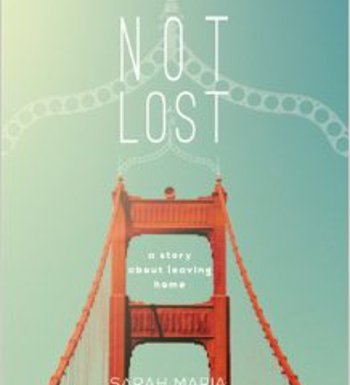IF SAN FRANCISCO could eat itself with a spoon, it would. I mean that almost literally.
There is a perpetual hunger here, some great tongue running around a hilly mouth, salivating fog all while asking ‘have you had brunch at that new place on sixteenth?’
There is a culture here, particularly in my neighbourhood, that treats food as though it were some holy thing, some precious experience, some glamorous commodity.
Organic, locally sourced, experimental, gluten free, vegan, dishes from all over the world in little nook restaurants and diners and trucks that pock the streets and are flocked to by lines of people, usually young people, often my age, but more stylishly dressed –though there is always a good flourish of real legitimate grownups too. They’re all invested. They’re all hungry.
Lines of people, or clusters, more accurately. I mean that literally. Often to get into a cafe or a diner, especially on weekends, it is well known that there can be up to an hour wait. You sign your name on a list and stick around until it gets called.
Outrageous? Yes. Who has time for that? My exact thoughts. Yet people wait. They chill out in the balmy sunshine complaining while staring into their smartphones, taking photos of their shoes or each other in their sunglasses.
Like they’ve nothing better to do, standing in a seventy person line outside Bi-Rite Creamery waiting for a ginger and lavender ice cream sundae –like this is leisure, this waiting for deliciousness.
They tell you with their calm, patient waiting that they are totally down with waiting for this double scoop, for that honey lavender ice cream, for that balsamic strawberry delight, for an hour, a whole hour, because they treasure this scoop. This scoop means a lot to them.
I had never seen this in Dublin. Myself and CB had a regular place we’d go to for Sunday Brunch (oh how little we knew of the great and masterful daytime episode that is Brunch in those days) in the docklands.
Usually we’d be hungover or un-showered, often both. We’d crawl up to the modern, minimally designed, Ikea-looking restaurant and the waitress, blonde with shoes I always liked but was too shy to ask about, would lead us to our table and we’d have our eggs benedict and everything would be fine. Nip in, nip out.
Some days, however, we’d arrive and there would be a couple or a family ahead of us, implying a wait. We would throw our hands up to the sky dramatically and pace off towards the Spar where we would bitterly purchase sausage rolls and chocolate croissants, pretending not to enjoy them, in spite. We would never wait. Never. Even if it was only going to be 10 minutes and we had nothing planned for the rest of the day, it was an absolute nope if ever there was one.
Now, however, having opened the great pantry door of San Francisco, we have been utterly transformed. The lines outside restaurants absorb us, we stand around tapping our toes making inane observations about the street we’re standing on or seeing who can say the word ‘t*ts’the loudest without getting embarrassed until we are granted entrance into these impeccably hip dining halls, these tiny pleasure domes.
So we’ve become them, those fools standing in line. And that’s, well, assimilation, right? Emigrant learning curve: just giving in to the cultural movements of the city you’re living in is ok. Even if some of them appear really stupid.
Just because you wouldn’t do it in Dublin doesn’t mean you can’t do it wherever you are now, right? Just because you can hear the ghost echoes of your former, pre-emigration self actively laughing at you and calling you thick doesn’t mean what you’re doing now is embarrassing or ridiculous in any way.
Even if it is wasting an hour of a perfectly good Saturday standing outside the same restaurant you ate in last Saturday. And the Saturday before. Don’t be so hard on yourself. That’s what people do here.
Restaurants and diners are cheap. Supermarkets are expensive. It costs more, or exactly the same, to make yourself a meal at home, especially if there’s meat involved, than it does to eat out. Like, that makes it shockingly expensive. Even the regular markets that aren’t full of locally sourced peach-fed poultry and locally sourced hand groomed apricots –of which there are many. Even the distant cousins of Tesco are expensive.
Besides, when you’re starry-eyed and caught up in the whirlwind of a new city, who wants to eat lunch at home? An insane privilege, so new. When your apartment literally doesn’t have any pots, pans, or utensils, why would you eat at home? When a plate of fresh food the size of your face costs less than a pint?
When you have no job, no friends, and your boyfriend is in Silicon Valley for 10 hours out of every day, why in the name of God would you eat at home? When, in so much of the American media you’ve been fed there’s been an interesting protagonist with a casual rapport with a waitress in a local cafe, especially writer-types, that whenever they walk in the doors of said cafe the lovely waitress greets them by name and says, ‘The usual?’ and in my imagination, I say, good morning Thelma, thanks, the usual would be great.
Eating alone is strange. It was a harsh, sudden new routine. There was nobody. Just me and The Mission.
They do fruit here that I had never seen in my life before. Cantaloup and honeydew, new sweet melons became obsessions, how much honeydew can I eat, can I eat so much that I swell and become one, become a spherical green planet full of water and sugar, I think I can. Avocados, too.
Oh, avocados. They arrived into my life and immediately become the softest things I had ever known –I had a brief altercation with one once in the lush fruit and vegetable aisle of Fallon & Byrne on Wexford Street and paid something outrageous and sad like four euro for it because I was really curious about what it would taste like.
Rubber, I had thought, slicing awkwardly into it, no clue how to navigate it’s thick skin, it’s planet-like seed. I didn’t like it. So I tried to wait for it to ripen. Here, little expensive avocado, do you want to live in the windowsill? The radiator?
Here is a little tupperware box for you to live in until you are ready to become what I have always dreamed you would be. I was like a mother hen coaxing an egg into a tiny chick. Where would it be most comfortable? Where could I sweet-talk it into the deliciousness I had predicted for it?
It went brown by the next morning. I swore off them then and was uninterested in them from there on in, until San Francisco sprawled its sundae with sprinkles hills ahead of me and I noticed that they were everywhere.
The markets that lined Mission Street were full of them. They were suddenly on burgers, a side order, on eggs. Oh lord, were they ever on eggs. These weird little buttery pods were suddenly important, a staple. A symbol, maybe.
Four nights in a row I attempt to make boxty. Boxty is mashed potato, grated potato, flour (in my case, gluten free flour-esque mix out of a bag) and egg whacked in a frying pan until it becomes an old Irish tradition.
My family never ate them, but somewhere post our first trip to Bed, Bath and Beyond when I had finally acquired some cheap pots and pans I took it upon myself to begin a tradition. The Griffin Boxty.
The Griffin Boxty looks and smells like nobody survived the fire. It was meant to be somewhere between fluffy and crispy with cheeky garlic and spring onion notes but everything is consistently wrong.
The stove heats up too fast. I keep forgetting what cups are to ounces. The blender makes everything like liquid. I feed CB the botched attempts.
He eats them with a forced grin, bless his long-suffering heart and I storm around in outrage. The cat keeps getting in my way.
I pick him up with my potato hands and drop him on CB’s lap. Cat hair everywhere. Cat hair boxty. Wash everything. Start again. Burn everything, start again.
It is, on night four of my refusal to stop trying to make edible boxty, tragically apparent that my previously assumed culinary precociousness was merely beginner’s luck.
My grandeur crumbled before me, like so many poorly constructed potato cakes. I have no idea how to cook boxty. It should be so simple and yet every time it hits the pan it is a gross slop. A charred mess.
I have dreams about my mother’s dinners.
I am angry at my teenage self and her selective, anxious appetite for rejecting them night after night, for favouring quarter pounders with cheese from The Hamburger Bar on the Kilbarrack road over them. I miss The Hamburger Bar on the Kilbarrack road. I miss our kitchen table, our dinky refrigerator, the constant presence of King Crisps and Cadbury snack-size chocolate bars.
I miss my sister’s insistence on leaving the teabag in the boiling mug until the water is black and bitter. Sometimes I imagine her chewing paper teabags just to get her hit. I miss how my Nana would make batch bread ham sandwiches and leave them on the kitchen table for me in a tiny wicker basket with a paper napkin inside it although it has been years since that was a regular occurrence.
I think about how perfect the stew she made was, the coddle. If I close my eyes I can see our pantry, the little plates of the tea-cakes my mam would put together. She’d slice the top part off and cut it in to two semi-circles, place a dab of cream on the exposed cake then replace the soft little half-moons like wings on top of what was then a fairy-cake. They’d sit on saucers and dinner plates around the house, one by one disappearing.
I could order in King Crisps and Cadbury bars off the internet, in bulk. I’m sure with a little wrinkled forehead concentration I could emulate a quarter pounder with cheese from the Kilbarrack road (actually, to be fair, In-n-Out Burger blows it out of the water). Sandwiches are nothing special, I definitely saw mini-baskets in the little dollar store on Mission.
Fairy-cakes are, even for the mad scientist in me, a basic paint-by-numbers recipe. You can even get the mixture in a box, pre-made. I have so much Irish tea in this house I could start running a business (I packed several boxes, and receive supplements in the post). I can’t even eat most of these things now and if presented with them would probably have to politely decline, or obnoxiously ask about their wheat flour content, or discreetly pick the ham from the sandwich and eat it sticky-fingered and lean.
Sometimes I wonder what has become of me.
When you can’t taste things, do you forget them? How much is forgotten with that taste? Hunger and homesickness are pretty much the same thing, right? Look. None of this is about the food. Not really.
Not Lost, published by New Island Press is available now. Griffin’s young adult debut, Spare & Found Parts, will be out in 2016



